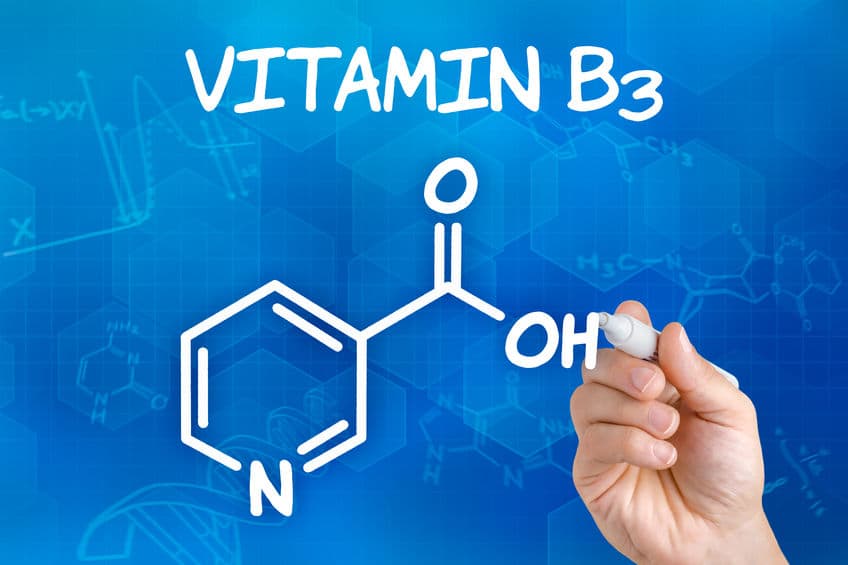
You can find the best food sources of Niacin in a variety of whole foods including meat from various animal sources, seafood and spices.
Best Food Sources Of Niacin, Vitamin B3
Whole food sources with the highest niacin content per 100 grams:
Meats
cooked yellow fin tuna 22.1mg
cooked skipjack tuna, 18.8 mg
cooked chicken breast 14.8mg
cooked light meat turkey, 11.8 mg
cooked, lean ground pork, 11.1 mg
bacon 11mg
cooked venison, 10.8 mg
cooked beef ribs 9.0mg
cooked, lean veal, 8.0 mg
Plant foods and spices
sesame seed flour, 12.5 mg
ground ginger, 9.6 mg
dried tarragon, 9.0 mg
dried, green sweet peppers, 7.4 mg
grilled portabella mushrooms, 6.2 mg
roasted sunflower seeds, 4.1 mg
dehydrated apricots, 3.6 mg
baked potato, 3.1 mg
Deficiency
Between 1906 and 1940 more than 3 million Americans were affected by pellagra with more than 100,000 deaths. Dr. Joseph Goldberger was assigned to study pellagra by the Surgeon General of the United States and produced good results. In the late 1930s, studies by Dr. Tom Spies, Marion Blankenhorn, and Clark Cooper established that niacin cured pellagra in humans. The disease was greatly reduced as a result.
At present, niacin deficiency is sometimes seen in developed countries, and it is usually apparent in conditions of poverty, malnutrition, and chronic alcoholism. It also tends to occur in areas where people eat maize (corn) as a staple food, since it is the only grain low in digestible niacin. A cooking technique called nixtamalization increases the bioavailability of niacin during maize meal/flour production.
Mild niacin deficiency has been shown to slow metabolism, causing decreased tolerance to cold.
Severe deficiency of niacin in the diet causes the disease pellagra, which is characterized by diarrhea, dermatitis, and dementia, as well as Casal’s necklace lesions on the lower neck, hyperpigmentation, thickening of the skin, inflammation of the mouth and tongue, digestive disturbances, amnesia, delirium, and eventually death, if left untreated. Common psychiatric symptoms of niacin deficiency include irritability, poor concentration, anxiety, fatigue, restlessness, apathy, and depression. Studies have indicated that, in patients with alcoholic pellagra, niacin deficiency may be an important factor influencing both the onset and severity of this condition. Patients with alcoholism typically experience increased intestinal permeability, leading to negative health outcomes.
Food sources can provide enough to prevent the dangerous consequences of niacin deficiency, however if you really want to feel the full benefits niacin has to offer, have a read of my article that explains the benefits of high doses of niacin.
Source: https://en.wikipedia.org/wiki/Niacin
https://therenegadepharmacist.com/benefitsofniacin/



Leave A Comment